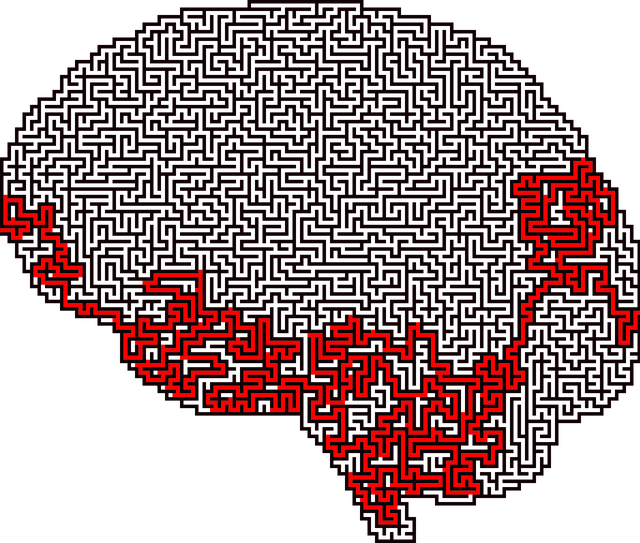Understanding Mental Health Data is key to providing effective therapy for adults, especially those seeking EMDR Certified treatment. This involves collecting data from various sources, preprocessing it for quality, and considering cultural sensitivity in risk assessments. Training professionals to recognize cultural nuances enhances therapy efficacy. EMDR, a powerful tool for trauma support, combines eye movements with guided recall to process complex memories. Interpreting mental health data allows therapists to tailor interventions, develop personalized self-care routines, and promote better mental health outcomes. Robust security measures and anonymization are crucial to protect privacy while adhering to legal and ethical standards. Transparent reporting and education reduce stigma, encouraging individuals to seek necessary therapy for adults with EMDR Certified treatments.
Mental health data analysis is a burgeoning field, crucial for understanding and treating adult psychological conditions. This article explores key aspects of this process, from Understanding Mental Health Data: Collection and Preprocessing, to the unique contributions of EMDR Therapy in Data Analysis. We delve into Interpreting Data and its practical applications in adult treatment, while addressing Challenges and Ethical Considerations essential for certified EMDR therapists. By leveraging data insights, mental health professionals can enhance their approach to therapy, ultimately improving patient outcomes.
- Understanding Mental Health Data: Collection and Preprocessing
- The Role of EMDR Therapy in Data Analysis
- Interpreting Data: Insights and Applications for Adult Treatment
- Challenges and Ethical Considerations in Mental Health Data Interpretation
Understanding Mental Health Data: Collection and Preprocessing

Understanding Mental Health Data is a critical step in providing effective therapy for adults, especially those seeking EMDR Certified treatment. The process begins with data collection, which involves gathering information from various sources such as patient self-reports, clinical assessments, and medical records. This data is then preprocessed to ensure its quality and consistency, removing any irrelevant or duplicate entries. Preprocessing also includes handling missing values and normalizing the data to facilitate accurate analysis.
In the context of a Risk Assessment for Mental Health Professionals, cultural sensitivity in mental healthcare practice becomes paramount. It’s essential to consider how cultural factors might influence patient responses and interpret data accordingly. This involves training mental health professionals to be aware of these nuances and incorporating them into data analysis and interpretation. Additionally, leveraging the insights from a Mental Wellness Podcast Series Production can provide valuable perspectives on emerging trends and best practices in mental health data management, further enhancing the efficacy of therapy for adults.
The Role of EMDR Therapy in Data Analysis

Eye Movement Desensitization and Reprocessing (EMDR) Therapy is a powerful tool in mental health data analysis, particularly for adults seeking trauma support services. This innovative approach helps individuals process complex memories and emotions associated with traumatic events. By combining eye movements or other bilateral stimulation techniques with guided recall, EMDR certified therapists facilitate the brain’s natural healing process.
In the context of risk management planning for mental health professionals, understanding EMDR is invaluable. It enables therapists to offer effective treatment for a range of conditions, including post-traumatic stress disorder (PTSD). Moreover, the structured nature of EMDR therapy can boost client confidence during the therapeutic journey, fostering a sense of safety and empowerment.
Interpreting Data: Insights and Applications for Adult Treatment

Interpreting data from mental health assessments is a critical step in designing effective therapy strategies for adults, particularly those seeking EMDR (Eye Movement Desensitization and Reprocessing) certified treatment. By delving into the insights gleaned from these data, therapists can tailor interventions to address specific challenges. For instance, analyzing trends in emotional responses during crises can guide the implementation of crisis intervention guidance, ensuring individuals have coping mechanisms for future distress.
This process also facilitates the development of personalized self-care routines, promoting better mental health and enhancing overall well-being. Moreover, understanding the emotional healing processes unique to each individual allows therapists to adapt their approach, making therapy more efficient. For adults facing complex issues, this nuanced interpretation of data is pivotal in achieving lasting positive outcomes.
Challenges and Ethical Considerations in Mental Health Data Interpretation

Mental health data interpretation presents unique challenges that require careful navigation. One significant hurdle is ensuring the privacy and confidentiality of sensitive information while adhering to stringent legal and ethical standards. With the increasing availability of digital health records, the risk of unauthorized access or misuse of personal data has never been higher. This concern, coupled with potential biases inherent in self-reported symptoms, necessitates robust security measures and rigorous protocols for data anonymization.
Additionally, ethical considerations play a pivotal role in therapy for adults, particularly when employing evidence-based techniques like Eye Movement Desensitization and Reprocessing (EMDR) Certified therapies. Mental health professionals must balance the benefits of data analysis with the potential harm of stigmatization or misinterpretation. Transparent reporting and public awareness campaigns development that promote understanding rather than fear can help reduce stigma and encourage individuals to seek necessary support. Moreover, ongoing education on risk assessment for mental health professionals is crucial in ensuring safe practices and ethical decision-making when interpreting complex data.
Mental health data analysis is a complex yet crucial process, especially with the rise of digital health tools. As we’ve explored, understanding and interpreting this data can lead to significant improvements in adult therapy, particularly through innovative techniques like EMDR. By addressing challenges and adhering to ethical considerations, mental health professionals can leverage data insights to provide more personalized and effective EMDR therapy for adults. This approach not only enhances treatment outcomes but also paves the way for a future where mental well-being is more accessible and better supported.









